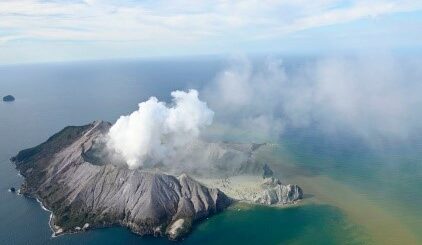National Current Affairs – UPSC/KAS Exams- 11th March 2019
SWIFT
Topic: Economy
In News: Reserve Bank of India(RBI) have imposed a monetary fine on 7 Banks for non-compliance with the directions on Implementing the SWIFT software.
More on the topic:
- The SWIFT is a global member-owned cooperative that is headquartered in Brussels, Belgium.
- It was founded in 1973 by a group of 239 banks from 15 countries which formed a co-operative utility to develop a secure electronic messaging service and common standards to facilitate cross-border payments.
- It carries an average of approximately 26 million financial messages each day. In order to use its messaging services, customers need to connect to the SWIFT environment.
Functions:
- SWIFT does not facilitate funds transfer: rather, it sends payment orders, which must be settled by correspondent accounts that the institutions have with each other.
- The SWIFT is a secure financial message carrier in other words, it transports messages from one bank to its intended bank recipient.
- Its core role is to provide a secure transmission channel so that Bank A knows that its message to Bank B goes to Bank B and no one else. Bank B, in turn, knows that Bank A, and no one other than Bank A, sent, read or altered the message en route. Banks, of course, need to have checks in place before actually sending messages.
Source: The Hindu
Cloud seeding
Topic: Science and Technology
In News: As 176 taluks reel under drought, the State government of Karnataka is hoping to influence the upcoming monsoon and capture as much water as possible from the rain clouds.
More on the Topic
- Cloud seeding uses planes to spray clouds with chemicals to condense smaller particles into larger rain droplets.
- The department is aiming to replicate the ₹35-crore ‘Varshadhare’ project two years ago that was called a success by an independent evaluation committee. Its report, submitted to the State government in 2018, estimated that rainfall was enhanced by 27.9%.
Cloud Seeding:
- Cloud seeding is a type of weather modification that aims to change the amount or type of precipitation that falls from clouds by dispersing substances into the air that serve as cloud condensation or ice nuclei, which alter the microphysical processes within the cloud.
- The usual intent is to increase precipitation (rain or snow), but hail and fog suppression are also widely practised in airports where harsh weather conditions are experienced.
- Cloud seeding also occurs due to ice nucleators in nature, most of which are bacterial in origin.
- The most common chemicals used for cloud seeding include silver iodide, potassium iodide and dry ice (solid carbon dioxide). Liquid propane, which expands into a gas, has also been used. This can produce ice crystals at higher temperatures than silver iodide. After promising research, the use of hygroscopic materials, such as table salt, is becoming more popular.
Source: The Hindu
Pulse Polio programme 2019
Topic: Health
In News: President Ram Nath Kovind launched the Pulse Polio programme for 2019 on March 9 by administering polio drops to children below five years at the Rashtrapati Bhawan.
More on the topic:
- Kovind administered the polio drops on the eve of National Immunisation Day, which is observed on March 10.
- More than 17 crore children below five years across the country will be given polio drops as part of the central government’s drive to sustain polio eradication from the country.
- Universal Immunisation Programme is focusing to protect children from more diseases than ever before and has introduced several new vaccines like pneumococcal conjugate vaccine, rotavirus vaccine and measles-rubella vaccine in the recent past.
- To provide additional protection to our children, the government has also introduced the injectable inactivated polio vaccine into its routine immunisation programme.
About Polio:
- Poliomyelitis, often called polio or infantile paralysis, is an infectious disease caused by the poliovirus. In about 0.5 percent of cases there is muscle weakness resulting in an inability to move.
Source: The Hindu
National Mission on Transformative Mobility and Battery Storage
Topic: Government Initiatives
In News: The Union Cabinet has approved setting up of a National Mission on Transformative Mobility and Battery Storage.
About National Mission on Transformative Mobility and Storage:
- The Mission will have an Inter-Ministerial Steering Committee chaired by Chief Executive Officer (CEO), NITI Aayog to promote clean, connected, shared, sustainable and holistic mobility initiatives.
- The Mission will also launch the Phased Manufacturing Programmes (PMP) for Batteries and for Electric Vehicle components.
- The mission will finalise and implement strategies for transformative mobility and Phased Manufacturing Programmes (PMP) for electric vehicles, their components and batteries.
- The Mission will have a ‘Make in India’ strategy for EV components as well as battery technologies.
Model Mains Question: National Mission on Transformative Mobility and Battery Storage will augment India’s transformation in to an electric vehicle technology hub. Discuss.
Source:The Hindu
India’s Official Secrets Act
Topic: Indian Polity
In News: Attorney-General’s request for “criminal action” against those responsible for making “stolen documents” on the Rafale deal public, has brought the Official Secrets Act into focus.
More on the Topic:
- The average out of pocket expenditure for cancer patients is 2.5 times that for other diseases.This move is expected to benefit 22 lakh cancer patients in the countryand would result in annual savings of approx. Rs. 800 crores to the consumers.
- The law meant for ensuring secrecy and confidentiality in governance, mostly on national security and espionage issues.
- The Indian Official Secrets Act, 1904 was enacted during the time of Lord Curzon, Viceroy of India from 1899 to 1905.
- One of the main purposes of the Act was to muzzle the voice of nationalist publications.
- The Indian Official Secrets Act (Act No XIX of 1923) replaced the earlier Act, and was extended to all matters of secrecy and confidentiality in governance in the country.
- The secrecy law broadly deals with two aspects — spying or espionage, which is dealt with in Section 3 of the Act, and disclosure of other secret information of the government, which is dealt with in Section 5. The secret information can be any official code, password, sketch, plan, model, article, note, document or information.
Source: The Hindu
Purple frog
Topic: Environment and Ecology
In News: Quantification of pink frog was done and published in the Journal of Asia-Pacific Biodiversity
More on the Topic:
- The rare and endangered soil-dwelling purple frog ( Nasikabatrachus sahyadrensis ) begins its life as a tadpole in certain fast-flowing streams of the Western Ghats. Scientists have now found that the speed with which water flows down these streams is one of the main factors that determine the presence and aggregation of these tadpoles.
- The tadpoles are rheophilic, which means they thrive in running water. Apart from several other body adaptations, their specialised mouthparts, which are like suckers, help them to anchor onto rocky areas in flowing water for nearly 100 days.
- According to the authors, the findings and observations by researchers provide “a strong rationale linking the impact of dam construction to loss of tadpole habitat”.
- The lead author of the study, says the construction of dams and check dams, and levelling and narrowing of streams to expand plantations can alter stream characteristics, in turn affecting the survival of the purple frog tadpole. The damming effect can also slow down the streams feeding water to the river.
Source The Hindu
Red-flagged Andamans tourism project
Topic: Environment and Ecology
In News: TThe Environment Ministry has amended laws that now allow a proposed tourism project in the Aves Island, of the Andaman and Nicobar island (A&N) territory.
More on the Topic:
- The project was the only one of three high-profile proposed tourism projects that did not get a clearance from an expert committee on coastal clearance.
- This was because the proposed Aves Island project was located 20 m away from the High Tide Line(HTL) and existing rules required such projects to be at least 50 m away.
- An official said that while the new rules did ease the way for the Aves Island project, it was also done to broadly align the changes in coastal zone regulations in the country’s mainland States with the island regions.
- An expert committee of the Union Environment Ministry “deferred” clearance to a Rs. 100 crore proposal by the Andaman and Nicobar Islands Integrated Development Corporation Limited to develop an island resort, as well as put up “premium tents” and “tree houses,” on the grounds that it did not account for the biodiversity of the islands’ coast.
- After site visits, the committee recommended two of them at Lalaji Bay on Long Island and at Smith Island for island protection zone clearance, with caveats.
- However, the Aves Island project was still red-flagged primarily because of the 50 m clause. In light of the March 8th notification, the committee is likely to re-look at the project.
Source The Hindu


















